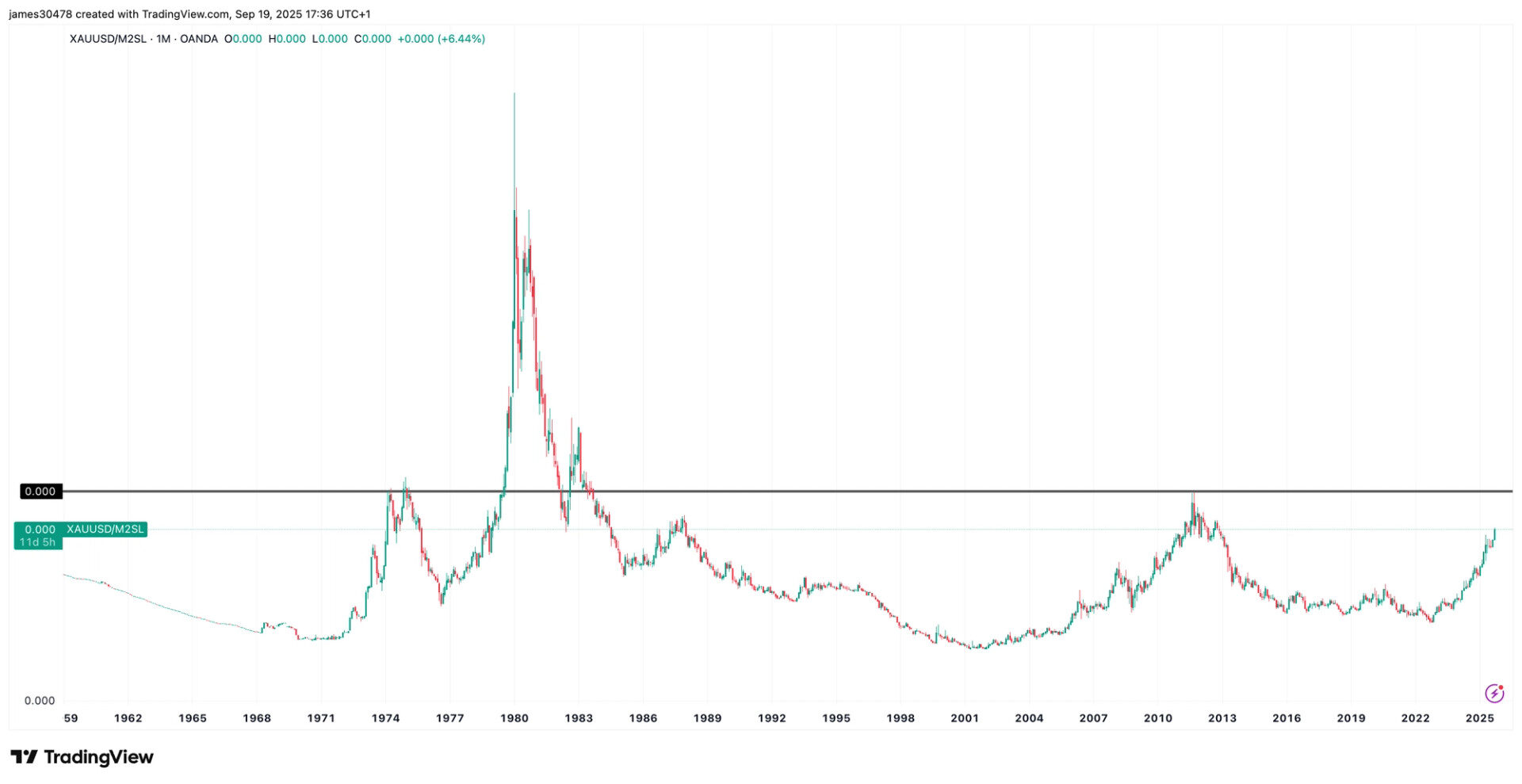-
Back to menu
Prices
-
Back to menu
-
Back to menu
Indices -
Back to menu
Research
-
Back to menu
Events -
Back to menu
Sponsored
-
Back to menu
Videos -
Back to menu
-
Back to menu
-
Back to menu
Webinars
Select Language
By James Van Straten, AI Boost|Edited by Stephen Alpher
Sep 21, 2025, 7:00 p.m.

- Gold has failed to outpace money supply growth since 2011.
- Bitcoin, meanwhile, consistently makes new highs relative to M2 each cycle.
- The difference in performance could highlight different roles of the two assets.
Gold has been one of the strongest performing assets in 2025, rising 38% year to date, outpacing bitcoin23% advance. It’s no secret, though, that bitcoin has done wildly better than gold (and pretty much everything else) over its short lifespan.
A check of the two popular inflation-resistant assets against a broad measure of U.S. money supply (known as M2) yields further insight about their performances.
STORY CONTINUES BELOW
Adjusted for M2 growth, gold — despite its recent strong run — remains below its 2011 peak and roughly the same level as it was in 1975. The all-time high for gold against M2 occurred in 1980.
Bitcoin tells a different story. Each bull cycle has seen BTC hit a record versus M2, including last month when bitcoin touched both an absolute all-time high as well as a new high relative to money supply.

This contrast could highlight the different roles of the two assets. Gold continues to serve as a long-standing hedge and a stabilizer in portfolios, while bitcoin’s behavior shows how new forms of money can respond differently to an era of rapid monetary expansion.
AI Disclaimer: Parts of this article were generated with the assistance from AI tools and reviewed by our editorial team to ensure accuracy and adherence to our standards. For more information, see CoinDesk’s full AI Policy.
More For You
4 hours ago

President Trump’s relentless attacks on the Fed risk triggering reflexive stubbornness among policymakers.
What to know:
- President Trump’s relentless attacks on the Fed risk triggering reflexive stubbornness among policymakers.
- This could deepen what Trump and others describe as a Fed that is “behind the curve,” potentially weighing on the U.S. dollar.








